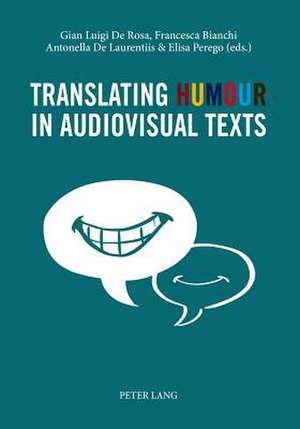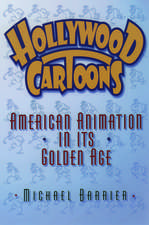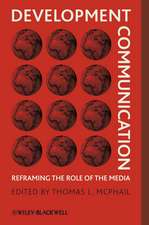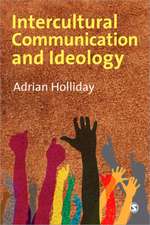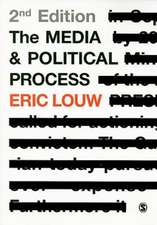Translating Humour in Audiovisual Texts
Editat de Gian Luigi DeRosa, Francesca Bianchi, Antonella De Laurentiis, Elisa Peregoen Limba Engleză Paperback – 10 dec 2014
Preț: 950.61 lei
Preț vechi: 1234.55 lei
-23% Nou
Puncte Express: 1426
Preț estimativ în valută:
181.96€ • 197.71$ • 152.94£
181.96€ • 197.71$ • 152.94£
Carte tipărită la comandă
Livrare economică 21 aprilie-05 mai
Preluare comenzi: 021 569.72.76
Specificații
ISBN-13: 9783034315555
ISBN-10: 3034315554
Pagini: 533
Ilustrații: Illustrations, black-white
Dimensiuni: 155 x 224 x 28 mm
Greutate: 0.77 kg
Editura: Peter Lang Gmbh, Internationaler Verlag Der W
ISBN-10: 3034315554
Pagini: 533
Ilustrații: Illustrations, black-white
Dimensiuni: 155 x 224 x 28 mm
Greutate: 0.77 kg
Editura: Peter Lang Gmbh, Internationaler Verlag Der W
Cuprins
Contents: Elisa Perego: Humour and audiovisual translation: an overview - Delia Chiaro: Laugh and the world laughs with you: tickling people's (transcultural) fancy - Patrick Zabalbeascoa : La combinación de lenguas como mecanismo de humor y problema de traducción audiovisual - Judit Mudriczki: Audiovisual humour transfer strategies in the Italian, Germanand Hungarian dubbed versions of Shrek the Halls - Vincenza Minutella: Translating verbally expressed humour in dubbing and subtitling: the Italian versions of Shrek - Silvia Bruti: Accent and dialect as a source of humour: the case of Rio - Gian Luigi De Rosa: Back to Brazil: humor and sociolinguistic variation in Rio - Alessandra Rollo: Humour e giochi di parole in Astérix et Obélix : Mission Cléopâtre. Quali strategie nella traduzione audiovisiva? - Elena Manca/Daesy Aprile: Culture, language, and humour: adapting wordplay in the Italian version of Wreck-it-Ralph - Brigid Maher: A tragicomic Australian film in Italian translation: finding something funny in Muriel's Wedding - Giuseppe De Bonis: Commedia in scompiglio: One, Two, Three. Il multilinguismo come veicolo di umorismo - Lucía Ruiz Rosendo : La variación en la recepción del humor como elemento cultural en la traducción audiovisual: Un estudio de caso - Elisa Lupetti : Bienvenue chez les Ch'tis - Giù al nord: lo stesso film? Sull'intraducibilità dello humour - Beatrice Garzelli: Lo humor di Almodóvar tradotto in italiano. Casi emblematici di doppiaggio e sottotitolaggio in ¡Átame!, La flor de mi secreto e Todo sobre mi madre - Antonella De Laurentiis: Humour partenopeo e varietà linguistiche nel doppiaggio spagnolo di Benvenuti al Sud - Juan José Martínez Sierra: Dubbing or subtitling humour: does it really make any difference? - Giovanna Di Pietro: It don't mean a thing if you ain't got that sync - An analysis of word order, kinesic synchrony and comic timing in dubbed humour - Claudia Buffagni: Tradurre lo humor nei sottotitoli per ipoudenti: la «Kiez-Komödie» Die Friseuse di Doris Dörrie (2010) - Valeria Tocco: Il comico verbale della Canção de Lisboa (1933): traducibilità e reinvenzione - Laura A. Colaci: Diversità culturale e umorismo nel film Maria, ihm schmeckt's nicht! - Thorsten Schröter: The Switch: an analysis of the film's conversational humour in terms of Grice's Cooperative Principle - and of its transfer into Swedish subtitles - Marco Cipolloni: «Volver a inmadurar» e altri «funny tricks of time». Decrescita, umorismo, prenotorietà e traduzione delle canzoni nelle versioni italiana e spagnola del film Mamma mia! - Francesca Bianchi: Fostering creativity in the translation of humour. The Stable Hyper-Islands Procedure - Ornella Lepre: Playing with humor: the translation of humor in video games - Pietro Luigi Iaia: Transcreating humor in video games: the use of Italian diatopic varieties and their effects on target audiences.
Notă biografică
Gian Luigi De Rosa (PhD in Portuguese and Brazilian Studies) is researcher and lecturer at the University of Salento (Italy). In 2013, he co-founded the Unisalento Summer School of Audiovisual Translation. Francesca Bianchi (PhD in Linguistics) is researcher and lecturer at the University of Salento (Italy). In 2013, she co-founded the Unisalento Summer School of Audiovisual Translation. Antonella De Laurentiis (PhD in Spanish and Latin American Studies) is researcher and lecturer at the University of Salento (Italy). She is collaborating with Lupe Romero (University of Barcelona) in a translation project focussing on Spanish-Italian subtitling. Elisa Perego (PhD in Linguistics) is researcher and lecturer at the University of Trieste (Italy). Her current research interests involve the reception of dubbing, subtitling and audio description for the blind.
